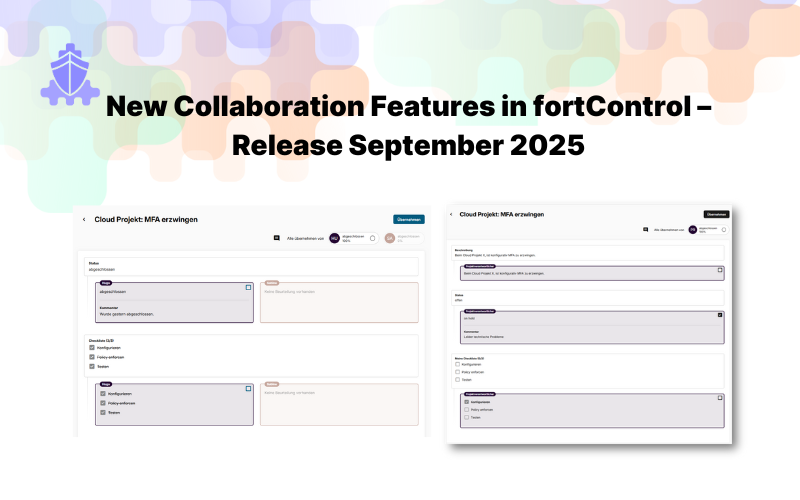ISO 27001 certification - is it worth it?
In today's business world, certification is a vital tool for demonstrating quality, security and compliance. Particularly in the area of information security, certifications such as ISO 27001 demonstrate an organisation's ability to protect sensitive data and mitigate risk. But what makes certification so valuable? And why should organisations view it as more than just a formality?
The value of certification
Certification provides an independent review of a company's processes and security standards. This validation has several benefits:
- Independent audit of maturity: An external assessment encourages companies to look critically at their internal processes and systems. The external view often reveals weaknesses and opportunities for improvement that may be overlooked internally. The objective assessment helps organisations realistically assess their security posture and make targeted improvements.
- Increased management attention: The certification process often results in greater management attention. Because such audits typically require a high-level strategic decision, the process raises the profile of security and compliance at executive level. This can also lead to additional budgets and resources being allocated to improvements.
There are other important benefits, especially for service providers:
- (Inter)national recognition: Internationally recognised certification enables companies to build trust with their partners and customers. In international business, certification can eliminate the need for individual inspections or audits. Customers trust that the company has already been audited against recognised standards.
- Time and cost savings: For service providers and their customers, this seal of approval means less effort in performing individual security checks. Certification is often considered sufficient, saving the time and cost of additional individual audits. This creates not only efficiency, but also trust.

If you're going to do it, do it right
Certification should not be used as mere window dressing. To ensure full benefit and recognition, it is essential that certification be carried out by an accredited authority. This is where accreditation authorities come into play.
The International Accreditation Forum (IAF) and also the regional accreditation group European Accreditation (EA) are authorities that ensure the quality and integrity of national accreditation bodies. National accreditation organisations, such as the Swiss Accreditation Service (SAS) in Switzerland, are members of these international authorities and follow their rules to ensure quality and comparability.
These rules include:
- Non-profit basis: National accreditation bodies do not operate for profit, but in the interest of certification quality.
- Transparency: The results of peer reviews are made available to the public to build trust.
In Switzerland, the SAS is responsible for the accreditation of certification bodies that carry out certifications such as ISO 27001. This accreditation means that the organisation is able to perform conformity assessments in accordance with international standards. It increases confidence in the reports and certificates issued, both nationally and internationally.
The journey is the reward
Certification such as ISO 27001 is not just about obtaining a certificate, but, more importantly, it is the documented starting point for the continuous improvement of the Information Security Management System (ISMS). The implementation of ISO 27001 requires a thorough analysis of existing processes, a systematic identification of risks and the establishment of measures to minimise risks. This journey leads to a culture of security awareness throughout the organisation.
ISO 27001 certification is therefore not the end, but a milestone on a continuous journey of improvement and adaptation to new challenges and threats to information security. The journey to compliance thereby becomes the goal itself: an organisation that has embedded security and trust in its information handling processes.
Conclusion: Certification as a competitive advantage
Certification to standards such as ISO 27001 offers much more than just formal confirmation of security measures. Itstrengthens the trust of customers and partners, reduces the cost of individual audits and creates clarity about the internal optimisation potential.
Obtaining certification through accredited bodies ensures that the certification is and remains recognised both nationally and internationally. For service providers in particular, this can be a competitive advantage and is likely to become a must in the medium term, to be considered for tenders.


.png)

.png)